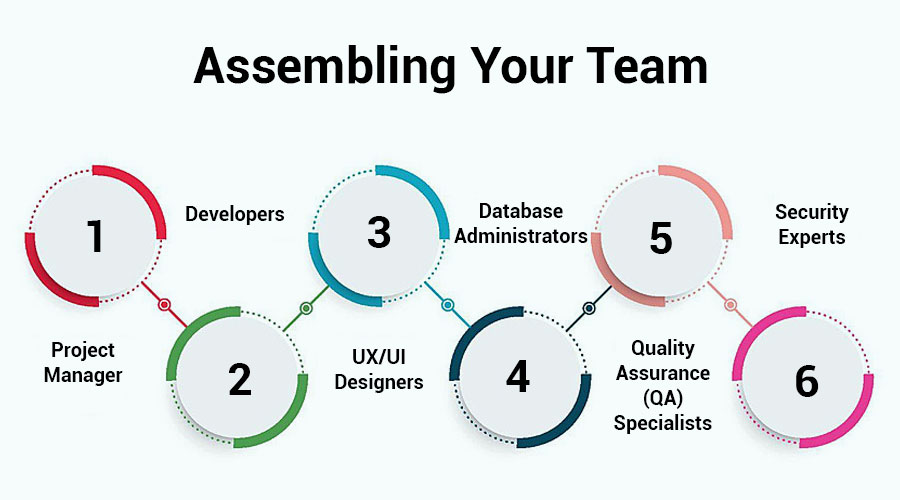Table of Contents
What is Websites Like Ebay?
In the expansive realm of online marketplaces, eBay stands tall as a pioneer, offering a platform where buyers and sellers converge to trade a vast array of goods. But what if you’re looking for alternatives? Whether you’re a seasoned online shopper or an aspiring entrepreneur seeking a platform to kickstart your business, exploring websites similar to eBay can open up a world of possibilities. Let’s delve into what these platforms offer and how they stack up against the e-commerce giant.
- Amazon: Arguably the most prominent contender in the e-commerce sphere, Amazon boasts a massive inventory ranging from electronics to clothing to groceries. With its robust seller infrastructure, individuals and businesses alike can tap into a vast customer base. Amazon’s Prime subscription service also offers perks like fast shipping and exclusive deals, enhancing the overall shopping experience.
- Etsy: Catering to the artisanal and craft-loving community, Etsy provides a platform for creators to showcase their handmade or vintage goods. From unique jewelry to personalized gifts, Etsy fosters a sense of community while offering buyers a diverse selection of one-of-a-kind items. Its user-friendly interface and focus on niche markets make it a standout choice for those seeking distinctive products.
- Facebook Marketplace: Leveraging the social networking giant’s extensive user base, Facebook Marketplace enables individuals to buy and sell locally. Whether you’re decluttering your home or hunting for secondhand treasures, this platform facilitates easy transactions within your community. With built-in communication tools and the ability to see seller profiles, buyers can enjoy a more personal shopping experience.
- Craigslist: A longstanding player in the online classifieds space, Craigslist remains a go-to platform for buying and selling a variety of items, from furniture to vehicles to real estate. Its simplicity and wide reach make it an attractive option for those seeking both local and national deals. However, users should exercise caution and practice due diligence when transacting on this platform, as it lacks the structured safeguards of other marketplaces.
- Bonanza: Positioned as an alternative to eBay, Bonanza offers sellers a platform to list their products with minimal fees and customizable storefronts. With a focus on fostering a sense of community and providing excellent customer service, Bonanza aims to differentiate itself in the competitive e-commerce landscape. Its integration with Google Shopping and other marketing channels also helps sellers reach a broader audience.
- Mercari: Boasting a user-friendly interface and a wide range of categories, Mercari facilitates buying and selling with ease. From electronics to fashion to home decor, users can list their items quickly and securely. Mercari’s streamlined shipping process and buyer protection policies offer peace of mind to both parties involved in transactions.
Market Prospects of Websites Like Ebay Applications and Platforms
In today’s digitally-driven world, online marketplaces have become the go-to destinations for both consumers and businesses alike. Among these platforms, eBay stands out as a pioneer, revolutionizing the way people buy and sell goods. However, in recent years, the landscape of e-commerce has evolved rapidly with the emergence of new applications and platforms. In this article, we’ll delve into the market prospects of websites like eBay and explore the opportunities and challenges they present.
Evolving Consumer Behavior: The rise of smartphones and the internet has reshaped consumer behavior dramatically. People now prefer the convenience of shopping online, browsing through a plethora of products from the comfort of their homes. This shift in consumer preferences has paved the way for the proliferation of e-commerce platforms, offering a diverse range of products and services.
Diversification of Platforms: While eBay continues to maintain its stronghold in the online marketplace industry, it faces stiff competition from a myriad of other platforms. Companies like Amazon, Etsy, and Alibaba have carved their niches, catering to specific market segments. Moreover, the advent of social commerce platforms such as Facebook Marketplace and Instagram Shopping has further diversified the market, offering alternative channels for buying and selling.
Advantages of eBay-Like Platforms: Despite the increasing competition, websites resembling eBay still hold significant advantages. Their established brand recognition, user-friendly interfaces, and robust seller protection policies continue to attract millions of users worldwide. Additionally, eBay’s auction-based model sets it apart, allowing users to bid on products and potentially secure deals at lower prices.
Emerging Trends and Technologies: To stay ahead in the fiercely competitive market, eBay-like platforms are embracing emerging trends and technologies. The integration of artificial intelligence (AI) and machine learning algorithms enables personalized recommendations, enhancing the shopping experience for users. Furthermore, advancements in mobile technology have facilitated seamless transactions on-the-go, catering to the needs of an increasingly mobile-centric audience.
Challenges and Opportunities: While the market prospects for websites akin to eBay appear promising, they are not without challenges. One significant challenge is the need to combat counterfeit products and ensure the authenticity of listings—a concern that affects consumer trust and brand reputation. Additionally, the ever-changing regulatory landscape and taxation policies pose operational challenges for global platforms operating in multiple jurisdictions.
However, amidst these challenges lie immense opportunities for growth and innovation. With the advent of blockchain technology, for instance, platforms can enhance transparency and security in transactions, mitigating fraudulent activities. Moreover, the growing trend of sustainability and ethical consumerism presents an opportunity for platforms to promote eco-friendly products and practices, catering to a socially conscious audience.
How Much Does It Cost to Build a Websites Like Ebay?
In the digital age, e-commerce platforms have become indispensable for businesses looking to reach a broader audience and maximize their sales potential. Among these platforms, eBay stands out as a pioneer, offering a vast marketplace for buyers and sellers worldwide. However, for entrepreneurs aspiring to create a website similar to eBay, understanding the cost implications is crucial. Let’s delve into the various factors that contribute to the overall expense of building a website like eBay.
- Platform Selection: The first decision to make is choosing the right platform for your website. While there are open-source options like WooCommerce and Magento, they often require additional development work to match eBay’s functionality. Alternatively, opting for a custom-built solution or using a dedicated e-commerce platform can provide more flexibility but may come at a higher cost.
- Development and Design: The complexity of eBay’s features, such as user accounts, product listings, search functionality, and payment gateways, necessitates extensive development work. Additionally, creating an intuitive and visually appealing design is crucial for attracting and retaining users. Hiring experienced developers and designers will significantly impact the overall cost.
- Hosting and Infrastructure: Building a robust infrastructure capable of handling high traffic volumes is essential for the smooth functioning of an e-commerce website. Depending on the expected traffic and scalability requirements, the cost of hosting services can vary significantly. Shared hosting may be suitable for small-scale operations, but larger websites may require dedicated servers or cloud hosting solutions, which incur higher expenses.
- Integration of Third-Party Services: eBay offers various features like shipping integration, payment processing, and analytics tools that contribute to its seamless user experience. Integrating similar third-party services into your website adds to the development costs. Additionally, licensing fees or transaction charges associated with these services should be considered when estimating the overall expenditure.
- Security Measures: Ensuring the security of sensitive user data and financial transactions is paramount for any e-commerce platform. Implementing robust security measures, such as SSL certificates, encryption protocols, and regular security audits, adds to the development costs but is essential for building trust with users and maintaining regulatory compliance.
- Testing and Maintenance: Thorough testing of the website’s functionality and performance is crucial before launch to identify and rectify any issues. Additionally, ongoing maintenance and updates are necessary to keep the website running smoothly and secure against potential threats. Budgeting for these ongoing expenses is essential for the long-term success of the website.
- Marketing and Promotion: Once the website is live, investing in marketing and promotional activities is vital for attracting users and driving sales. This includes search engine optimization (SEO), social media marketing, email campaigns, and potentially paid advertising. Allocating a budget for these activities is essential to generate initial traction and sustain long-term growth.
Why eBay Vendors are Migrating from eBay?
In recent years, there has been a noticeable shift in the online marketplace landscape, with eBay vendors seemingly packing their digital bags and seeking greener pastures elsewhere. This mass exodus raises a pertinent question: Why are eBay sellers abandoning the platform they once relied on for their livelihoods?
Diving into the heart of the matter, several factors contribute to this migration phenomenon.
1. Increasing Fees and Expenses: One of the primary grievances voiced by eBay vendors is the steadily rising fees imposed by the platform. What once started as a cost-effective way to reach a global audience has transformed into a financial burden for many sellers. From listing fees to final value fees, eBay’s fee structure can eat significantly into profits, especially for small-scale sellers or those operating on tight margins.
2. Intense Competition: eBay’s vast marketplace attracts millions of sellers worldwide, resulting in fierce competition for visibility and sales. With countless listings for similar products, standing out amidst the crowd becomes increasingly challenging. Moreover, eBay’s algorithmic changes and search ranking criteria often leave sellers struggling to maintain visibility, leading to frustration and dwindling sales.
3. Policy Changes and Seller Restrictions: eBay’s frequent policy changes and seller restrictions have left many vendors feeling disillusioned and disenfranchised. Whether it’s stringent return policies, limitations on seller communications, or arbitrary account suspensions, these hurdles create a sense of instability and unpredictability for sellers, pushing them towards alternative platforms with more seller-friendly policies.
4. Evolving Buyer Behavior: The modern consumer’s shopping habits are evolving rapidly, with preferences shifting towards convenience, reliability, and personalized experiences. Some eBay sellers find it challenging to meet these evolving expectations, especially in terms of shipping times, customer service, and product quality. As a result, they seek out platforms that align better with contemporary consumer demands.
5. Emergence of Alternative Platforms: The rise of alternative online marketplaces presents eBay sellers with viable alternatives to diversify their selling channels. Platforms like Amazon, Etsy, Shopify, and even social media marketplaces offer unique selling propositions, ranging from lower fees and greater control over listings to access to niche markets and targeted advertising options. For many sellers, exploring these alternatives proves enticing in comparison to the constraints of eBay.
6. Shift Towards Own E-commerce Sites: With the proliferation of e-commerce tools and platforms, some eBay vendors opt to establish their own independent online stores. By doing so, sellers gain full control over branding, pricing, customer relationships, and policies, thereby reducing reliance on third-party marketplaces like eBay. This trend reflects a desire for autonomy and long-term sustainability in the competitive e-commerce landscape.
Essential Features of a Websites Like Ebay?
In the bustling world of e-commerce, creating a platform akin to eBay requires more than just a basic understanding of online selling. Successful websites like eBay are characterized by a myriad of essential features that seamlessly blend user experience, security, and functionality. Whether you’re a seasoned entrepreneur or a budding startup, grasping these fundamental elements is crucial for crafting a compelling online marketplace. Let’s delve into the key features that make websites like eBay thrive in the digital landscape:
- User-Friendly Interface: The cornerstone of any successful e-commerce platform lies in its user interface (UI). Websites like eBay boast intuitive interfaces that effortlessly guide users through the buying and selling process. From streamlined navigation to visually appealing layouts, prioritizing user-friendliness enhances engagement and encourages repeat visits.
- Robust Search and Filtering Options: With millions of products available, efficient search and filtering mechanisms are indispensable. eBay-like websites incorporate advanced search algorithms and filtering options, allowing users to refine their searches based on categories, price range, location, and more. This not only simplifies the browsing experience but also helps customers find precisely what they’re looking for.
- Secure Payment Gateways: Trust is paramount in online transactions. Implementing secure payment gateways instills confidence in buyers and sellers alike. Websites like eBay integrate trusted payment processors, encryption protocols, and fraud detection systems to safeguard sensitive information and facilitate seamless transactions.
- Comprehensive Product Listings: Detailed product listings are essential for conveying relevant information to potential buyers. Features like high-quality images, detailed descriptions, pricing transparency, and shipping details empower users to make informed purchasing decisions. Additionally, incorporating user-generated reviews and ratings fosters transparency and builds credibility within the community.
- Mobile Responsiveness: In an increasingly mobile-centric world, optimizing websites for mobile devices is imperative. eBay-like platforms prioritize mobile responsiveness, ensuring seamless functionality across various screen sizes and devices. This enables users to browse, buy, and sell on the go, enhancing accessibility and driving engagement.
- Personalized Recommendations: Leveraging data-driven algorithms, websites like eBay deliver personalized recommendations tailored to each user’s preferences and browsing history. By suggesting relevant products and deals, personalized recommendations enhance the overall shopping experience and encourage repeat purchases.
- Seller Tools and Support: Empowering sellers with robust tools and support is crucial for fostering a thriving marketplace. Features like seller dashboards, inventory management tools, shipping integrations, and customer support resources equip sellers with the necessary tools to manage their businesses effectively and provide exceptional service to customers.
- Community Engagement Features: Building a sense of community fosters loyalty and encourages user engagement. Websites like eBay incorporate community forums, social sharing options, and interactive features that facilitate communication and collaboration among users. This not only enhances the overall user experience but also cultivates a vibrant online community.
- Scalability and Flexibility: As traffic and transactions grow, scalability becomes paramount. eBay-like platforms are built with scalability and flexibility in mind, allowing for seamless expansion and adaptation to evolving business needs. Whether it’s accommodating increased user traffic or integrating new features, scalability ensures continued success in the long run.
- Continuous Improvement through Analytics: Data-driven insights play a pivotal role in optimizing performance and driving growth. Websites like eBay leverage analytics tools to track user behavior, monitor key metrics, and identify areas for improvement. By analyzing data and iterating on strategies, continuous improvement is achieved, ensuring the platform remains competitive and relevant in the ever-evolving e-commerce landscape.
How Konstant Can Help in Building eCommerce Websites like eBay?
In today’s digital era, eCommerce has emerged as a pivotal aspect of global commerce. With giants like eBay setting the benchmark for online marketplaces, businesses aspire to replicate such success. However, the journey from conception to execution of an eCommerce platform demands meticulous planning, robust development, and seamless integration of features. This is where Konstant steps in as a reliable partner, offering tailored solutions to create eCommerce websites akin to eBay.
Understanding the Essence of eBay
Before delving into how Konstant can assist in building eCommerce platforms similar to eBay, it’s crucial to grasp the essence of eBay itself. eBay revolutionized online shopping by introducing a platform where individuals and businesses could buy and sell a myriad of products. Its success lies in its user-friendly interface, extensive product listings, secure payment gateways, and robust seller-buyer interaction mechanisms.
Tailored Solutions by Konstant
- Custom Development: Konstant specializes in crafting custom eCommerce websites tailored to the unique requirements of businesses. Whether it’s creating a user-friendly interface, integrating advanced search and filter options, or ensuring seamless checkout processes, Konstant excels in delivering solutions aligned with client objectives.
- Scalability: Similar to eBay, scalability is paramount for any eCommerce platform. Konstant employs scalable architectures and frameworks that can accommodate growth seamlessly. Whether it’s handling increased traffic, expanding product catalogs, or integrating third-party APIs, Konstant ensures that the platform evolves with the business.
- Mobile Optimization: With the proliferation of smartphones, mobile optimization is non-negotiable for eCommerce websites. Konstant prioritizes mobile responsiveness, ensuring that the platform functions flawlessly across various devices and screen sizes. This enhances user experience and expands the reach of the eCommerce platform.
- Security Features: Security is a cornerstone of any successful eCommerce venture. Konstant integrates robust security features, including SSL encryption, secure payment gateways, and stringent data protection measures, to instill trust and credibility among users.
- SEO Optimization: Building an eCommerce platform is futile if it remains invisible to potential customers. Konstant employs SEO best practices to optimize website visibility and rankings on search engine results pages (SERPs). This includes keyword research, on-page optimization, and content marketing strategies to drive organic traffic and enhance brand visibility.
- Integration of Advanced Features: Konstant goes beyond the basics to incorporate advanced features that enhance user experience and operational efficiency. From personalized product recommendations and AI-powered chatbots to predictive analytics and real-time inventory management, Konstant ensures that the eCommerce platform stands out amidst competition.
Collaborative Approach:
Konstant adopts a collaborative approach, working closely with clients throughout the development lifecycle. From initial ideation and conceptualization to deployment and post-launch support, Konstant remains committed to exceeding client expectations. By fostering transparent communication and incorporating client feedback iteratively, Konstant ensures that the final product aligns with the client’s vision and business objectives.
How to Create a Websites like eBay – Team and Tech Stack
In today’s digital age, the e-commerce industry has witnessed exponential growth, with online marketplaces becoming the go-to destinations for consumers worldwide. Among these platforms, eBay stands out as a pioneer, revolutionizing the way people buy and sell goods online. If you’re inspired by eBay’s success and dream of creating your own online marketplace, you’re in the right place. In this guide, we’ll delve into the essential steps and considerations for building websites like eBay, including assembling the right team and selecting the appropriate tech stack.
Understanding the Concept:
Before diving into the technical aspects, it’s crucial to have a clear understanding of what makes eBay successful. eBay is a peer-to-peer marketplace that connects buyers and sellers worldwide, offering a vast array of products across various categories. It provides a user-friendly platform for listing items, bidding, and facilitating transactions securely. Your goal in creating a similar website should be to replicate this user experience while adding your unique value proposition.
Assembling Your Team:
Building a website like eBay requires a diverse team with expertise in various domains. Here are key roles to consider:
- Project Manager: Oversees the entire development process, ensuring timely delivery and adherence to requirements.
- Developers: Front-end and back-end developers proficient in technologies like HTML, CSS, JavaScript, and frameworks such as React or Angular for the frontend, and Node.js, Python, or Ruby on Rails for the backend.
- UX/UI Designers: Create intuitive and visually appealing interfaces to enhance user experience.
- Database Administrators: Manage the database architecture and ensure scalability and data integrity.
- Quality Assurance (QA) Specialists: Conduct thorough testing to identify and rectify any bugs or issues.
- Security Experts: Implement robust security measures to protect user data and transactions.
Choosing the Right Tech Stack:
Selecting the appropriate technologies is crucial for the success of your online marketplace. Here’s a recommended tech stack:
- Frontend: Utilize modern frameworks like React.js or Angular.js for dynamic and responsive user interfaces.
- Backend: Opt for scalable and reliable backend technologies such as Node.js, Python (Django), or Ruby on Rails, capable of handling large volumes of traffic and transactions.
- Database: Consider using databases like MySQL or PostgreSQL for storing and managing structured data efficiently.
- Payment Gateway Integration: Integrate secure payment gateways like PayPal, Stripe, or Braintree to facilitate seamless transactions.
- Hosting and Infrastructure: Choose reliable hosting providers like AWS, Google Cloud, or Azure for scalability, security, and performance.
Key Features to Include:
To ensure the success of your online marketplace, incorporate essential features similar to eBay:
- User Registration and Profiles: Allow users to create accounts, manage profiles, and track their transactions.
- Product Listings: Enable sellers to list products with detailed descriptions, images, and pricing.
- Search and Filters: Implement robust search functionality and filters to help users find products quickly.
- Bidding and Auctions: Facilitate bidding and auction mechanisms for competitive pricing.
- Secure Transactions: Implement secure payment gateways and SSL encryption to protect user data and transactions.
- Feedback and Ratings: Enable buyers and sellers to leave feedback and ratings to build trust within the community.
- Customer Support: Provide responsive customer support channels to address user queries and concerns promptly.
Top Websites like eBay Development Companies
In the fast-paced world of e-commerce, finding the right platform for your online business is crucial. While eBay has long been a go-to option for many sellers, there are several other platforms out there that offer similar features and even some unique advantages. If you’re considering alternatives to eBay, you’re in luck. In this article, we’ll explore some of the top websites like eBay and the development companies behind them.
-
-
Next Big Technology:

Focus Area
- Mobile App Development
- App Designing (UI/UX)
- Software Development
- Web Development
- AR & VR Development
- Big Data & BI
- Cloud Computing Services
- DevOps
- E-commerce Development
Industries Focus
- Art, Entertainment & Music
- Business Services
- Consumer Products
- Designing
- Education
- Financial & Payments
- Gaming
- Government
- Healthcare & Medical
- Hospitality
- Information Technology
- Legal & Compliance
- Manufacturing
- Media
-
- Shopify: Shopify has emerged as a powerhouse in the world of e-commerce platforms. Known for its user-friendly interface and customizable options, Shopify allows businesses to set up their online stores quickly and easily. Development companies specializing in Shopify offer a range of services, from store setup and design to custom app development and integration.
- Etsy: If you’re in the market for unique, handmade, or vintage goods, Etsy is the place to be. This niche marketplace caters to artisans and crafters, providing them with a platform to showcase and sell their creations. Development firms focusing on Etsy can help sellers optimize their shops, improve visibility, and drive sales through strategic marketing efforts.
- WooCommerce: Built as a plugin for WordPress, WooCommerce powers millions of online stores worldwide. It offers a robust set of features and flexibility, making it an excellent choice for businesses of all sizes. Development agencies specializing in WooCommerce can assist with everything from setting up the platform to customizing themes and plugins according to specific needs.
- Alibaba: For those looking to tap into the global market, Alibaba presents a unique opportunity. As one of the world’s largest B2B marketplaces, Alibaba connects businesses with suppliers and manufacturers from around the world. Development companies focusing on Alibaba can help businesses navigate the platform, establish their presence, and optimize their operations for success.
- BigCommerce: Similar to Shopify, BigCommerce offers a comprehensive e-commerce solution with a focus on scalability and performance. It caters to businesses of all sizes, providing them with the tools they need to succeed online. Development firms specializing in BigCommerce can help businesses launch their stores, customize designs, and integrate third-party applications for added functionality.
- Magento: As an open-source e-commerce platform, Magento offers unparalleled flexibility and customization options. It’s ideal for businesses with unique requirements or complex product catalogs. Development agencies specializing in Magento can create bespoke solutions tailored to the specific needs of businesses, from design and development to ongoing support and maintenance.














